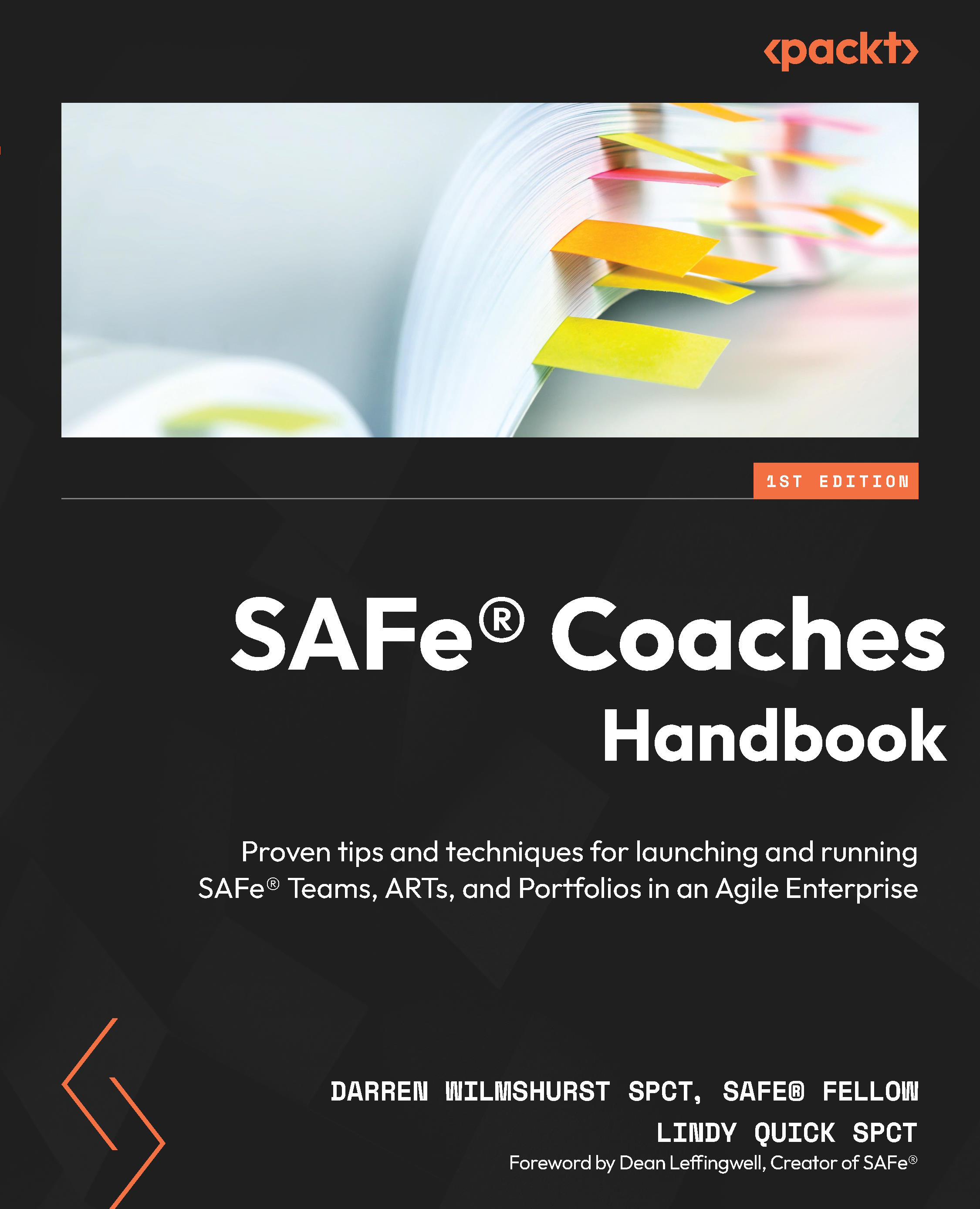Day-To-Day within a PI
SAFe® is a fractal model; everything we do at the team level, we effectively replicate at the ART level, although the frequency might be different. Figure 3.4 is one of our favorite images from SAFe® because it shows that correlation.

Figure 3.4 – ART events (© Scaled Agile, Inc.)
In this chapter, we need to explore how the PO, Scrum Master/Team Coach, and Agile Team participate in these ART events; however, a more detailed explanation of these events is contained in Part 2. Once you have read Part 2, it might be a good idea to revisit this chapter.
PI Events and the Product Owner
While the PI Event itself isn’t an everyday occurrence, there are activities throughout the PI that involve the PO.
The Product Owner and the PI Planning Event
The Team Backlog is the primary input the PO is responsible for ensuring is prepared for the PI Planning Event. During the event, the PO is critical. In addition...
































































